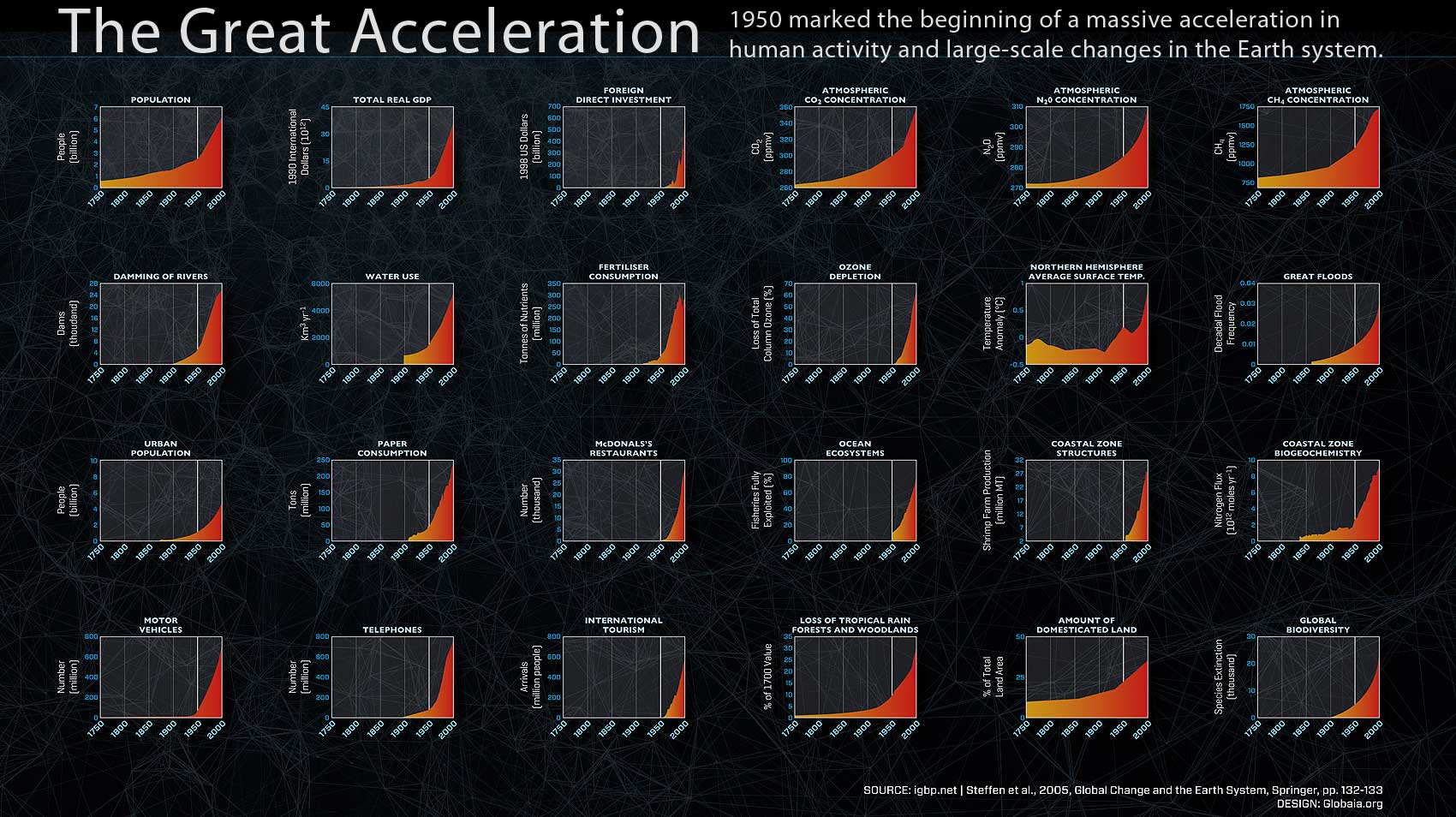Source: On the age of computation in the epoch of humankind, by Christoph Rosol, Benjamin Steininger, Jürgen Renn, & Robert Schlögl
tl;dr: To paraphrase Homer Simpson, “To Computation! The cause of… and solution to… humanity’s resource problems.”
Digital technologies do not only provide the basic infrastructure to control the industrial metabolism, they also are first-rate consumers of resources. Through the entwinement of the digital sphere with the physical world and actual energy and material cycles, digital communication has become tightly coupled to the current dynamics of wear and tear of earthly resources. No computational infrastructure can exist without the prior transformation of matter and no information without the transformation of energy.
The asymmetry of signals and effects should therefore not be misinterpreted. Information technology is the opposite of an immaterial technology. Even the smartest device needs dumb metals. At least 40 chemical elements are used in every smartphone, which means we carry around one-third of the periodic table in our pockets. What seems to be an almost immaterial business of zeros and ones makes use of more chemical elements than every previous technology in history.
…
Smart data technologies appear to many to offer ways out of the energy and resource dilemma. … However, in undertaking such endeavours, rebound effects should be a concern. As the well-known Jevons’ paradox states, increasing efficiency will likely lead to an increase in consumption in response to lower prices. One will have to see if smart, adjustable technologies create a difference to that rule.
…
Digital technologies have greatly contributed to a frenzy of unsustainable resource exploitation and consumption, the generation of waste and political ambivalence, yet they appear as viable solutions to ameliorate those problems. The rapid and radical change that has occurred to the Earth system as a result of the impacts of industrialized societies has been accompanied – if not leveraged – by rapid and radical changes in information technologies and digital media. Yet still, the hope is that their potential and collaborative scalability for a rational counter approach to untenable developments is enormous.
